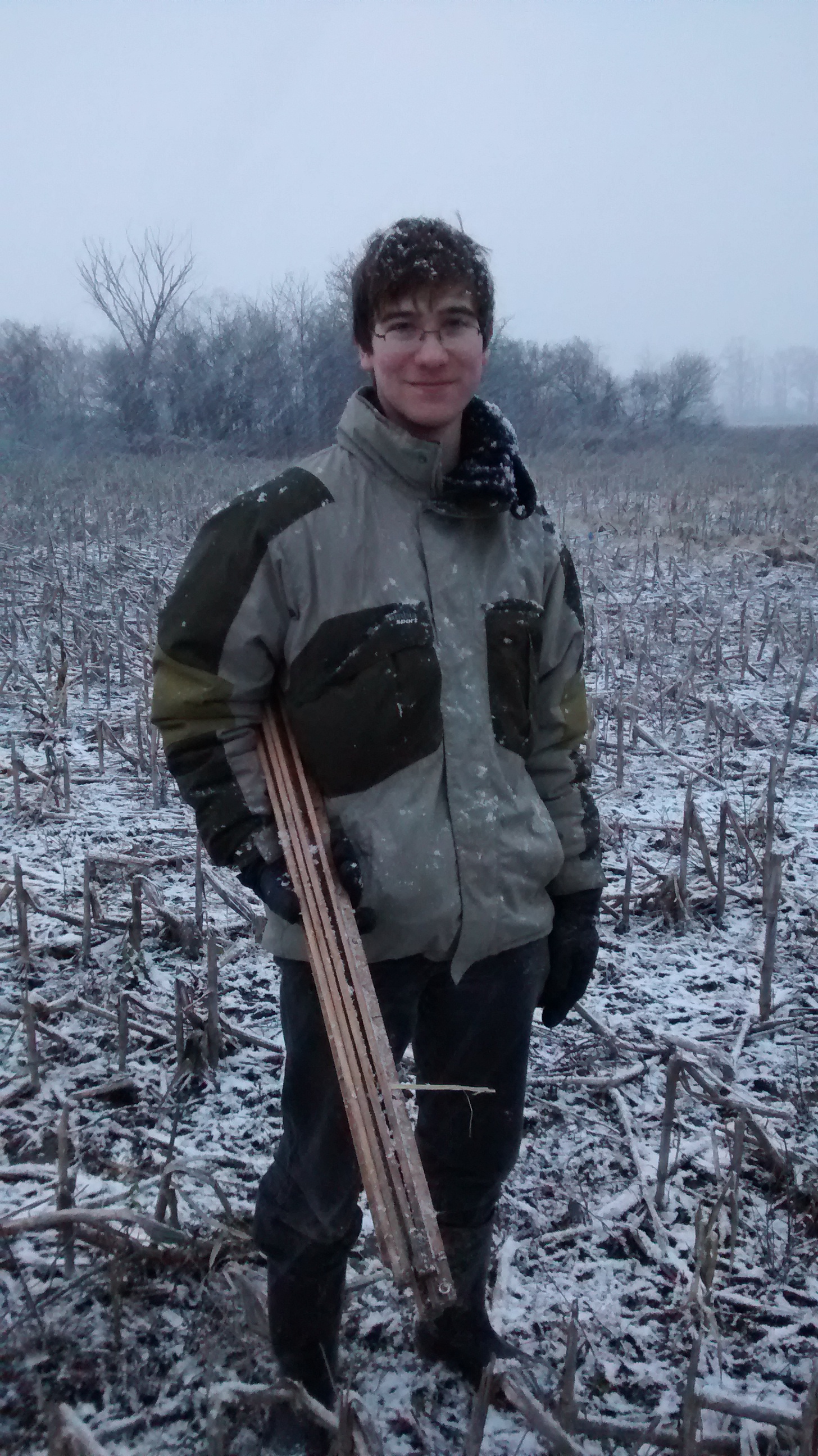Michael McTavish receives Murray Buell Student Award for uncovering earthworms’ appetites for seeds

Michael McTavish sets up mulch plots to assess earthworm interactions with soil amendment at Glenorchy Conservation Area, Ontario, Canada, in November 2014. Credit: Heather Cray.
The Ecological Society of America recognizes Michael J.M. McTavish for an outstanding student research presentation at the 101st Annual Meeting of the Society in Fort Lauderdale, Florida in August 2016. ESA will present the awards during the 2017 Annual Meeting in Portland, Oregon. The awards ceremony will take place on Monday, August 7, at 8 AM in the Oregon Ballroom at the Oregon Convention Center.
Award panel members honored Michael J.M. McTavish with the Buell Award for his presentation “Selective granivory of exotic earthworms within commercial grass seed mixes: Implications for seeding-based restoration in invaded ecosystems.” McTavish is a doctoral candidate working with Professor Stephen D. Murphy in the School of Environment, Resources & Sustainability at the University of Waterloo in Ontario, Canada.
Murray F. Buell had a long and distinguished record of service and accomplishment in the Ecological Society of America. Among other things, he ascribed great importance to the participation of students in meetings and to excellence in the presentation of papers. To honor his selfless dedication to the younger generation of ecologists, the Murray F. Buell Award for Excellence in Ecology is given to a student for the outstanding oral paper presented at the ESA Annual Meeting.
The invasion of earthworms into previously earthworm-free soils is instigating sweeping change in the ecosystems of eastern North America. This has brought interest in the earthworms’ appetite for seeds and how they may impact ecological restoration projects that add seeds to soil. McTavish investigated the characteristics of commercial grass seeds favored by the exotic earthworm Lumbricus terrestris. He observed how earthworm activity affected the biomass of different types of grass in outdoor, enclosed experiments called mesocosms, which simulate natural environments under controlled conditions. He found that earthworms preferred smaller seeds that had been coated to increase water uptake, resulting in decreased grass biomass in mesocosms planted with coated seeds. The judges felt that McTavish showed excellence in presenting and answering his experimental questions, particularly praising his distribution of text and pictures. His experimental results formed a comprehensive and important story.
 Julienne NeSmith receives Lucy Braun Student Award for investigating combined impacts of climate and cogongrass invasion on native pine
Julienne NeSmith receives Lucy Braun Student Award for investigating combined impacts of climate and cogongrass invasion on native pine- More 2017 awards